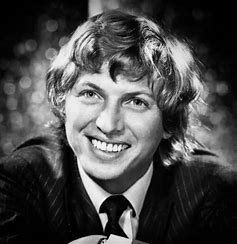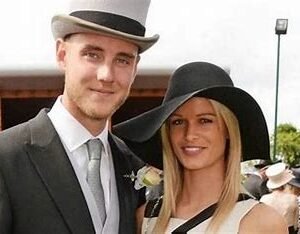The year is 3000. Time travel, once a fantastical notion, is now a commonplace reality. Yet, even amongst the wonders of interstellar exploration, the legend of the Doctor endures. In 2005, a pivotal moment occurred – the return of Doctor Who, a British science fiction series that had captivated audiences for decades, after a 16-year hiatus.
This article delves into the impact of this revival and its lasting legacy, a century later.
A Show Frozen in Time
The first time we saw Doctor Who on TV was in 1963. The eccentric Time Lord, a centuries-old alien travelling in a blue police box called the TARDIS, explored the universe with his companions.
The show faced cancellation in 1989, leaving a generation with a sense of loss. Technology evolved, space exploration became a reality, but Doctor Who remained a relic of the past.
A New Regeneration
The 2005 revival marked a bold decision by the BBC. Russell T Davies, a passionate fan, took the helm as showrunner. He understood the essence of the series – a celebration of adventure, wonder, and humanity. Yet, the revival needed to resonate with a new generation.
The Doctor regenerated. Christopher Eccleston became the Ninth Doctor, a figure shrouded in mystery, haunted by a dark past. Rose Tyler, a relatable young woman from London, became his companion. The iconic TARDIS, now sleek and modernized, held the promise of thrilling journeys. The series embraced modern special effects, creating believable alien worlds and fantastical creatures.
More Than Just Sci-Fi
Doctor Who wasn’t just about spaceships and lasers. Davies imbued the series with a heart. The Doctor, despite his alien nature, championed humanity. He fought for the underdog, championed the marginalized, and faced impossible odds with wit and courage.
The companions served as the audience’s surrogate, their awe and fear reflecting our own. Rose, Donna Noble, Martha Jones – each brought a unique perspective, reminding viewers of the humanity within the fantastical narrative.
Tackling the Big Issues
The revival didn’t shy away from social commentary. Episodes tackled themes of war, climate change, class division, and technological anxieties.
It explored the ethical dilemmas of advanced technology, forcing viewers to confront uncomfortable realities. Yet, it never lost its sense of fun, reminding us of the power of hope and resilience.
A Global Phenomenon
Doctor Who transcended its British roots. The charismatic performances, gripping storylines, and diverse characters resonated with audiences worldwide. Fan communities flourished online, fostering discussions and fueling the show’s popularity.
It became a cultural phenomenon, inspiring countless homages, adaptations, and even academic studies.
A Legacy that Endures
The 2005 revival paved the way for a new golden age for Doctor Who. It brought back a beloved character for a new generation, introducing millions to the wonders of time travel and the boundless possibilities of the universe.
Even in 3000, with our advanced technology and interstellar travel, Doctor Who continues to resonate. It reminds us that the most fascinating journeys are often inward, exploring the depths of human nature. It reminds us of the power of courage, compassion, and the hope that a single individual can make a difference.
While time travel allows us to explore the past firsthand, Doctor Who reminds us of the value of stories, of the shared experience of wonder and adventure. As long as we have stories like Doctor Who, the past remains alive, and the future holds endless possibilities.
FAQs
Who was the Doctor in the 2005 revival?
The Doctor regenerated for the ninth time, ushering in a new era. Christopher Eccleston portrayed the Ninth Doctor, a figure burdened by a mysterious past and a Time War that haunted him. He was initially withdrawn and brooding, but his compassion and courage shone through.
Who was the first companion in the revival?
Rose Tyler, played by Billie Piper, became the Doctor’s companion in the first episode of the revival. A relatable young woman from London, Rose stumbled into the Doctor’s world and found herself swept up in thrilling adventures across time and space. Her awe and wonder mirrored those of the audience.
How did the revival differ from the classic series?
While retaining the core elements of the Doctor, the TARDIS, and time travel, the revival offered a modernized approach. Special effects were significantly improved, creating more believable alien worlds and creatures. The narrative pace was faster, appealing to modern audiences. Thematic exploration was broader, tackling social issues alongside fantastical adventures.
What were some of the major themes explored?
The 2005 revival addressed various social issues, often woven seamlessly into the plot. War, particularly the aftermath and its psychological impact, featured prominently. Climate change became a backdrop for some stories, urging viewers to consider environmental responsibility. Class division and societal inequalities were explored through various characters’ experiences. Technological anxieties also surfaced, prompting viewers to question the ethics of advanced technology.
How did the revival resonate with a global audience?
Beyond the captivating storylines and visuals, the revival’s success stemmed from its universal themes. The Doctor’s fight for justice, his championing of the underdog, and his unwavering hope resonated with viewers worldwide. The diverse range of companions also contributed, offering different perspectives on the Doctor’s adventures.
What was the impact of the revival outside of television?
The Doctor Who revival became a cultural phenomenon. Fan communities sprung up online, fostering discussions and creating fan art, cosplay, and even fanfiction. The show inspired countless homages across other media, from video games to comic books. Academic studies delved into the show’s themes, cultural impact, and influence on science fiction.
How many seasons did the revival last?
The initial revival ran for five seasons (2005-2010) with three different Doctors: Christopher Eccleston’s Ninth Doctor, David Tennant’s Tenth Doctor, and Matt Smith’s Eleventh Doctor. Each Doctor brought their unique personality and approach to exploring the universe.
Who took over the show after Russell T Davies?
Russell T Davies, the showrunner who spearheaded the revival, stepped down after the fourth season. The reins were then passed on to Steven Moffat, who continued the show’s success for several seasons, introducing new companions and continuing the overarching storyline.
Is the 2005 revival considered part of the overall Doctor Who story?
Absolutely. The 2005 revival is considered a continuation of the original series, incorporating elements from its rich history and mythology. References to past companions, enemies, and events are sprinkled throughout the revived episodes, creating a sense of continuity for longtime fans.
To read more, Click here





